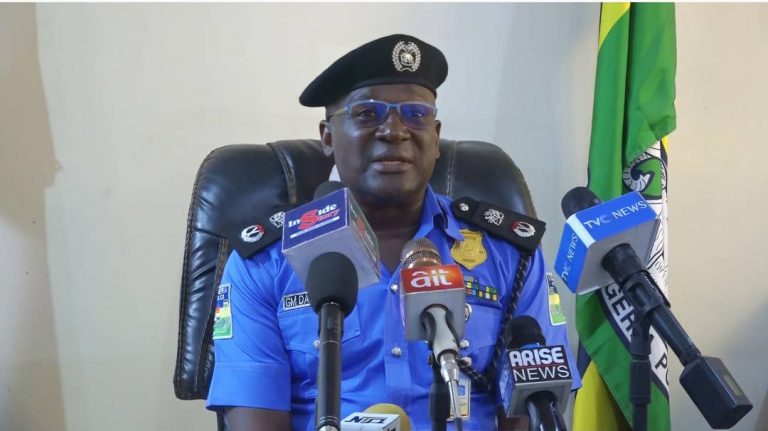
Daniel Otera
On Monday, 16 June 2025, the Kogi State Police Command presented cheques totalling ₦13.7 million to the families of seven officers who died in active service.
While the gesture fits neatly into the police welfare narrative, it raises deeper questions about the long-term impact of such payouts and the structural value Nigeria places on the lives of its uniformed personnel.
The presentation, described in a statement by the command’s spokesperson, SP William Aya, was made under the Nigeria Police’s Group Life Assurance and IGP Family Welfare Scheme. According to the statement, the initiative is intended to “ensure that families of fallen officers are not forgotten.”
But beyond ceremonial optics and handshakes, what does this ₦13.7 million payout truly represent in a country where frontline officers face chronic exposure to violence, irregular pay, and limited institutional support? When broken down, the amount averages just under ₦2 million per family, a figure that raises concerns over whether the state is offering dignity or merely delivering damage control.
A 2024 review of police fatalities in Nigeria showed that nearly 350 officers were killed between 2018 and 2023, many during operations involving bandits, armed robbers and terror groups.
One of the most harrowing incidents occurred in Shiroro, Niger State, in 2022, where eight police officers died alongside military personnel and civilians during an ambush. Despite the growing risks, Nigeria’s police welfare and insurance provisions remain sparse and inconsistently implemented.
The 2025 federal budget allocated only ₦2 billion to general security and law enforcement operations with no clearly defined provision for police pensions or structured insurance benefits.
For many bereaved families, this raises an uncomfortable question: Is the system genuinely honouring sacrifice, or simply offering symbolic closure?
Public presentations of condolence cheques have become a recurring feature of police welfare announcements. Between 2023 and mid-2025, the Nigeria Police Force publicly disbursed over ₦15.6 billion in death benefits to more than 5,200 families of officers who died in service.
In January 2024, the Inspector-General of Police presented ₦2.86 billion to 785 families, under the same welfare scheme. Similar ceremonies followed in Lagos, Anambra, and other state commands throughout the year.
While these gestures are presented as acts of honour, the pattern of one-time, media-friendly payouts raises concern over whether the state is investing more in ritualised gestures than in enduring welfare systems.
In several documented cases, families of fallen officers reported long delays, inconsistencies, or complete lack of follow-up support after initial payments.
Although the Police Act 2020 provides for comprehensive welfare measures including life insurance, educational support for children of deceased officers, and posthumous benefits, actual implementation remains patchy. Civil society reports and open-source records suggest that access to entitlements is often slow, poorly coordinated, and rarely tracked.
As of June 2025, no public audit has confirmed whether all eligible families nationwide have received their full benefits.
In Kogi State, the risk for security personnel remains pronounced particularly in border communities like Omala and Yagba East.
In April 2024, armed assailants attacked Agojeju-Odo in Omala Local Government Area, killing at least 25 people and displacing hundreds, according to reports by Premium Times and The Guardian.
In January 2024, the Kogi State House of Assembly confirmed that six residents were kidnapped within three weeks in Yagba East, raising alarms over the spread of armed robbery and abductions in the area.
Despite these realities, there is no comprehensive public record tracking how many bereaved police families in Kogi or anywhere else have received long-term welfare or institutional support.
While CP Miller Dantawaye’s presentation of cheques reflects an intent to honour the dead, critics argue that symbolic payouts however well-intended cannot replace structural reforms.
Issues such as improved working conditions, prompt pension payments, mental health support, and widow empowerment remain largely unaddressed in Nigeria’s policing framework.
A single cheque of ₦1.9 million per family may offer temporary relief, but it does little to alter the trajectory of widows facing economic hardship or children pulled out of school due to lost income.
As insecurity continues to claim the lives of Nigeria’s security personnel, true honour may lie not in public ceremonies, but in sustainable systems that preserve the dignity of the living and the memory of the dead.
